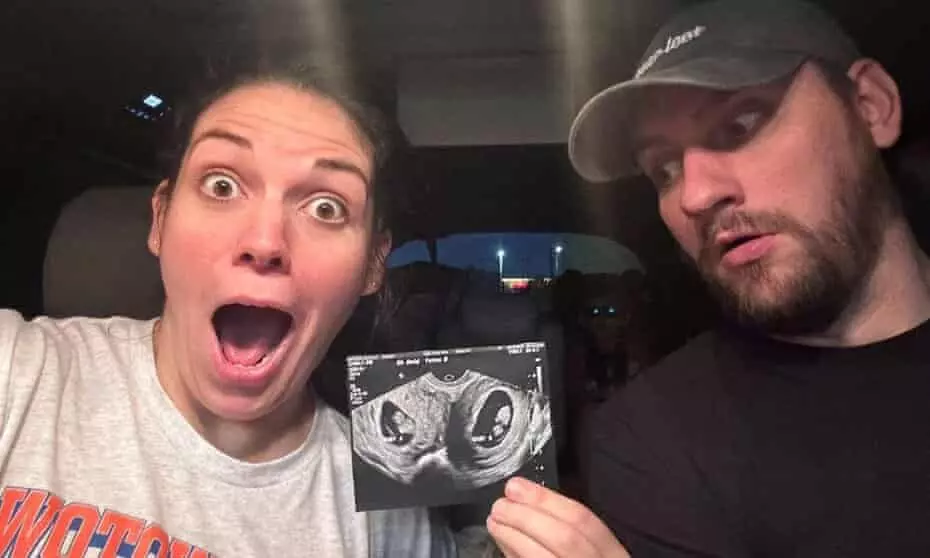
In rare medical event, woman with two uteruses is pregnant in both wombs
text_fieldsCredit: The Guardian
Doctors describe the pregnancy of an Alabama woman with two uteruses as "astounding" and unusual because she is expecting baby girls in both wombs.
The 32-year-old mother of three, Kelsey Hatcher, was born with uterus didelphys, or having two uteruses, a rare uterine condition. But it wasn't until this spring, when she found out she was pregnant—in both uteruses—that she received a diagnosis for the condition.
Hatcher claimed that her husband almost didn't believe her.
“He said: ‘You’re lying,’ I said: ‘No, I’m not,” Hatcher said.
Roughly 0.3% of women have uterine didelphys. Fertility researchers have shown that the anomaly develops in the female embryo extremely early in development, at about eight weeks gestation.
“The fact both ovaries ovulated at the same time, or around the same time, is pretty astounding,” according to Dr. Hayley Miller, a fellow in maternal-fetal medicine at Stanford Medicine's OB-GYN department and an American College of Obstetricians and Gynaecologists member, the Guardian reported.
Doctors are getting ready to have more staff on hand for Hatcher's labour while she gets ready to give birth to two infants. Physicians may face unique complications when dealing with women who have two uteruses and two cervixes.
“I have cared for many patients with two uteruses and two cervixes, and it is oftentimes challenging to even induce labour with two cervixes and two uteruses,” said Miller.
The infants may even be born hours or days apart, as the uteruses could independently go into contractions. The risk of a caesarean section for a woman with two uteruses was also brought up by Hatcher's doctor. Specifically, they warned that there could be increased blood loss because two incisions would need to be made—one in each uterus.


















